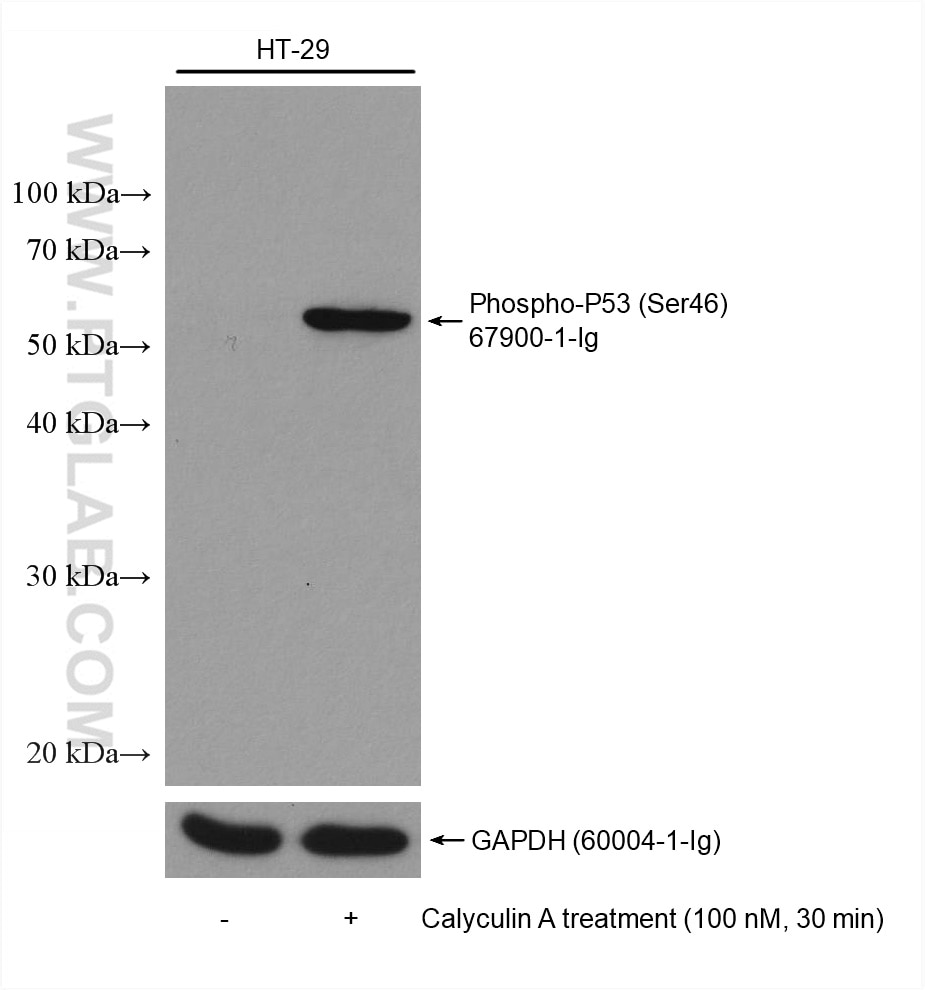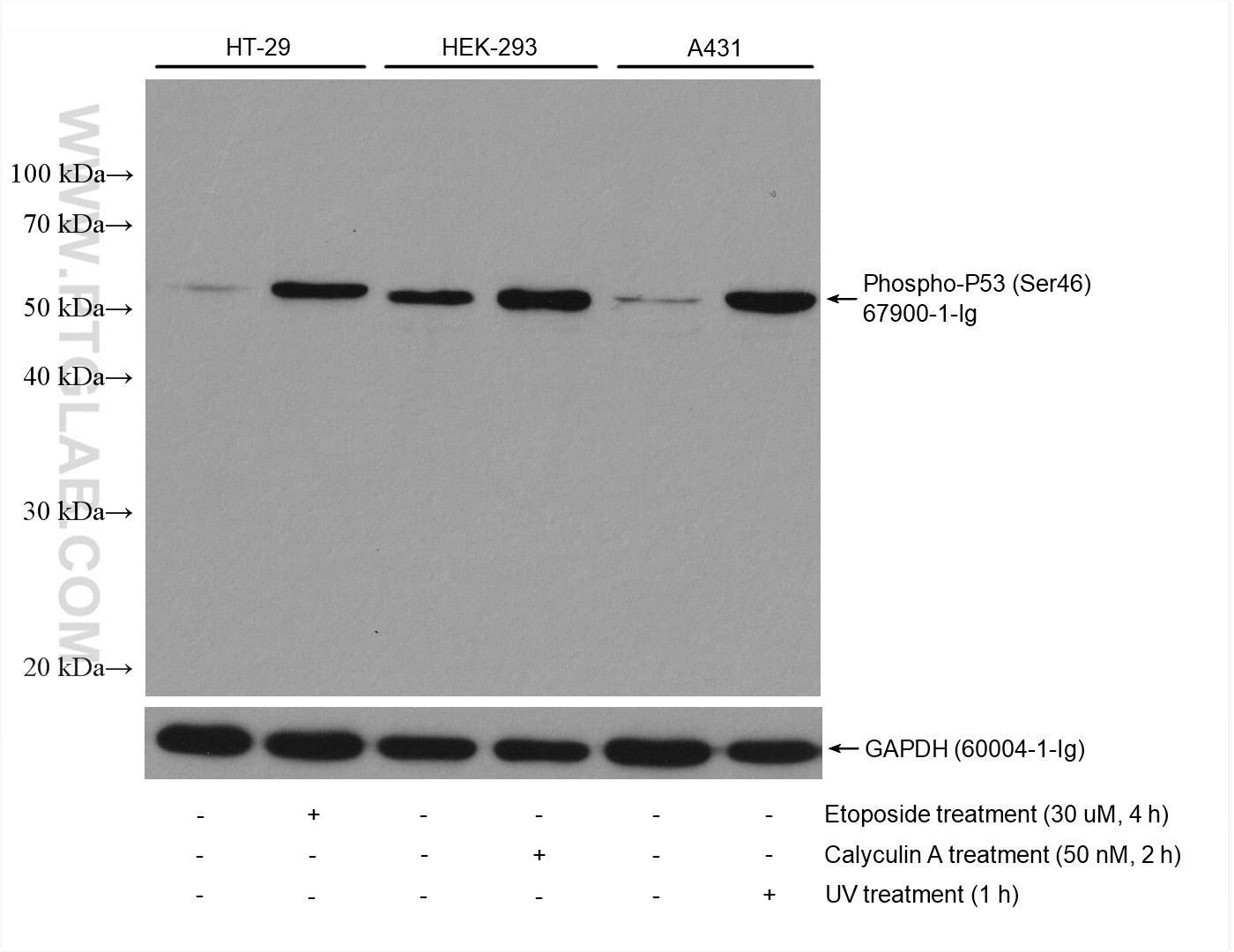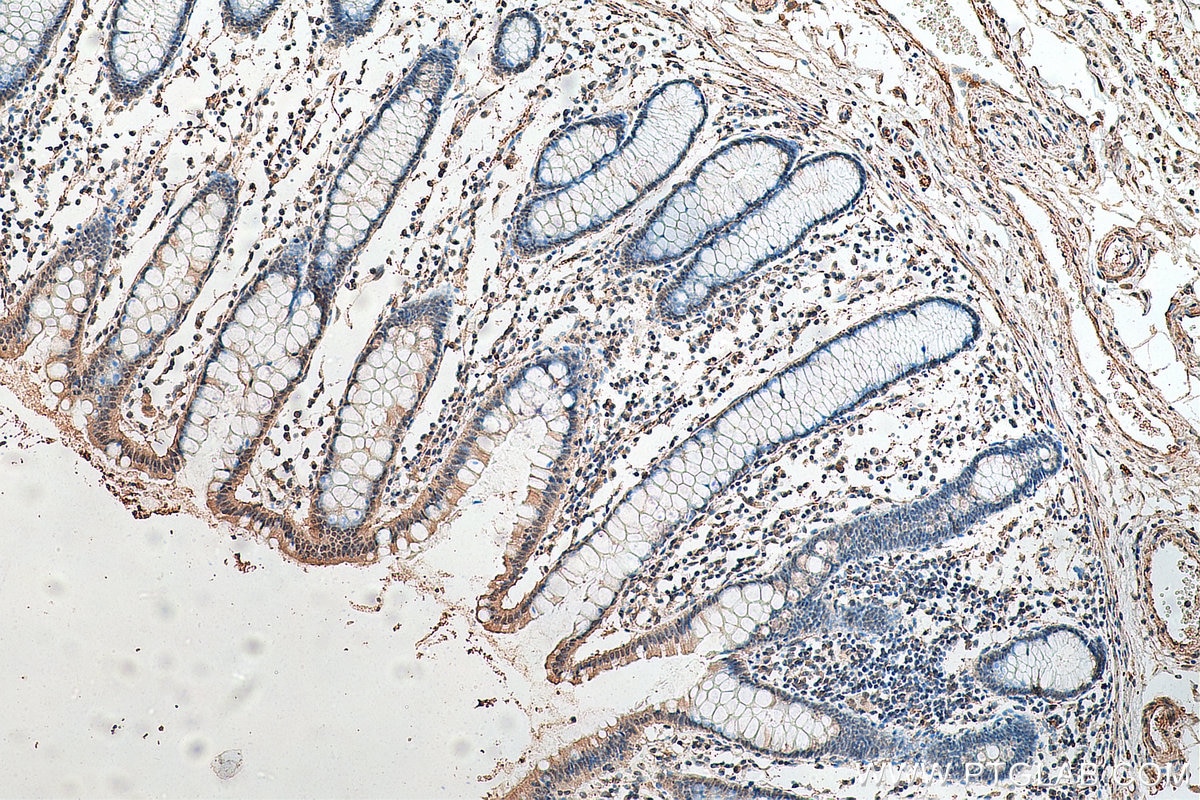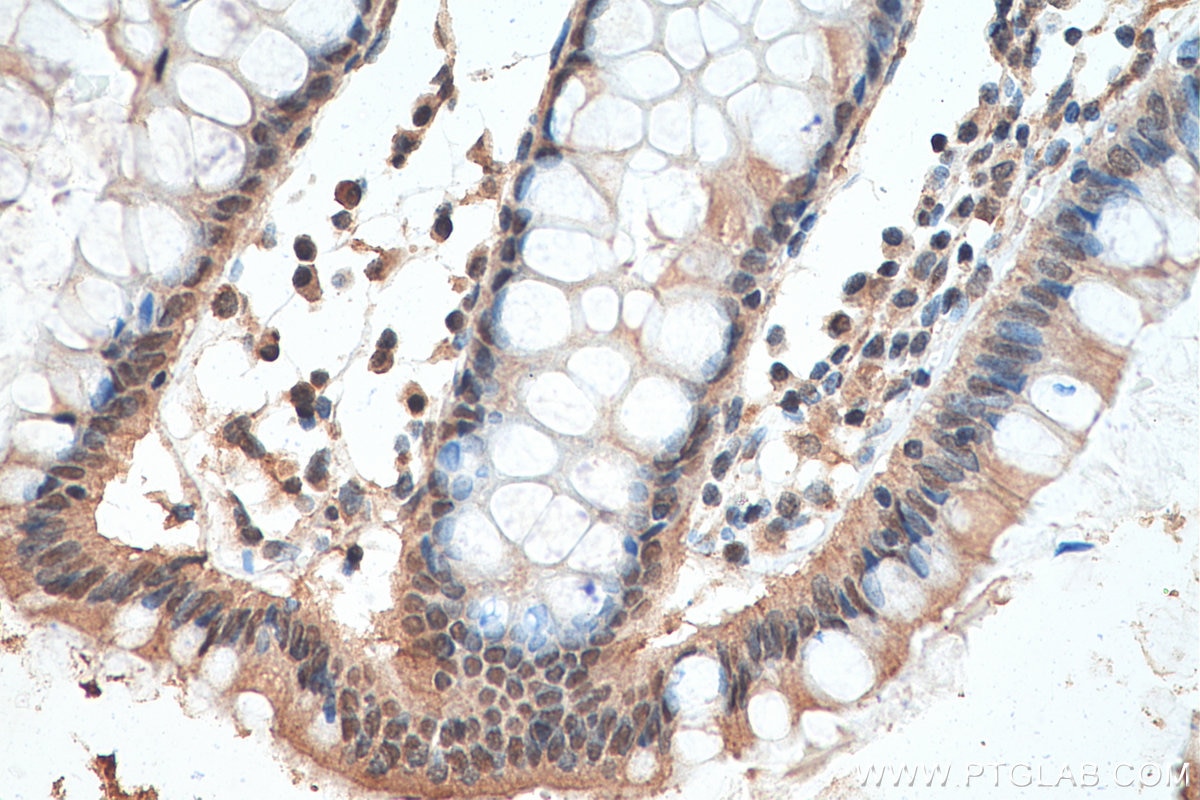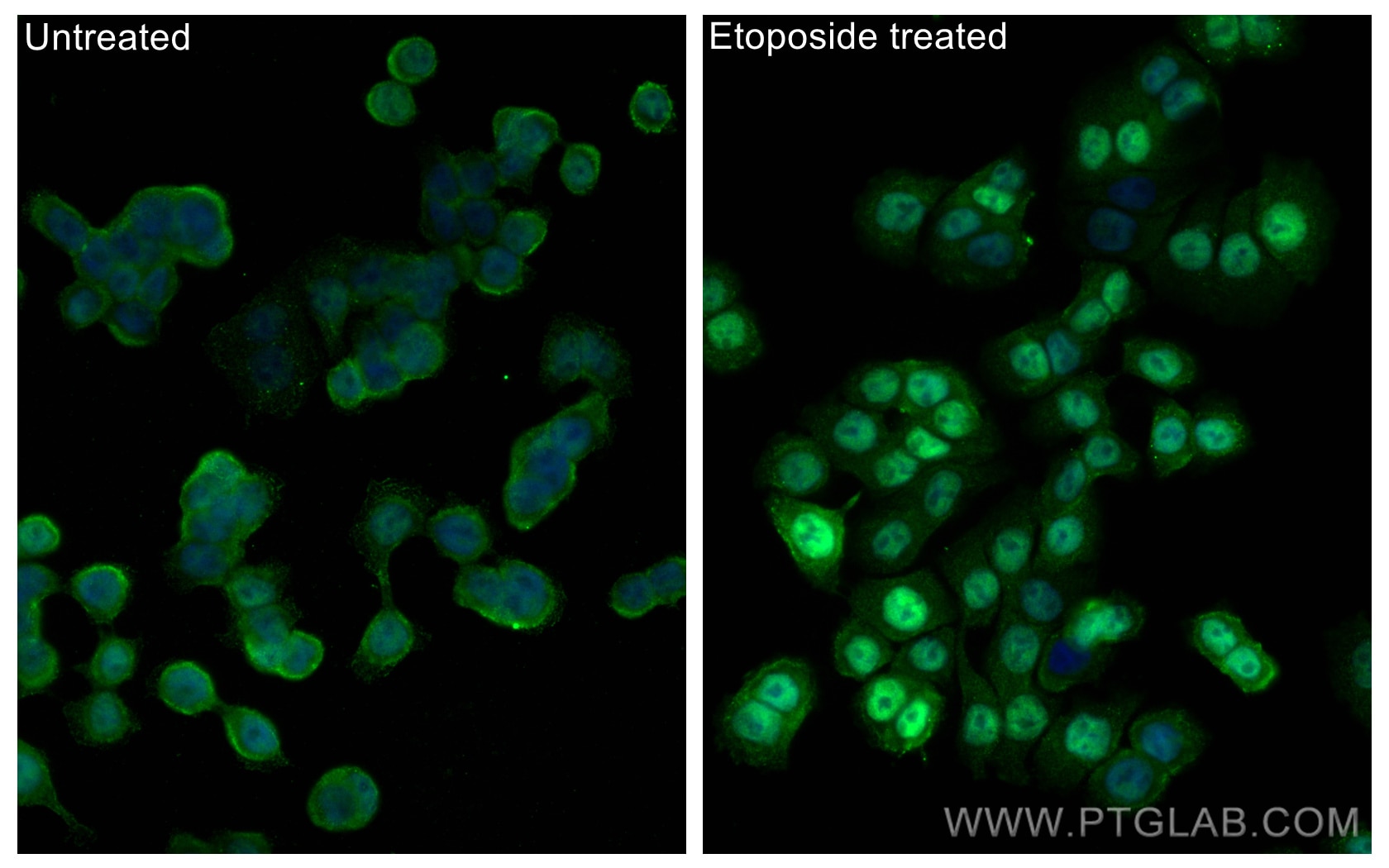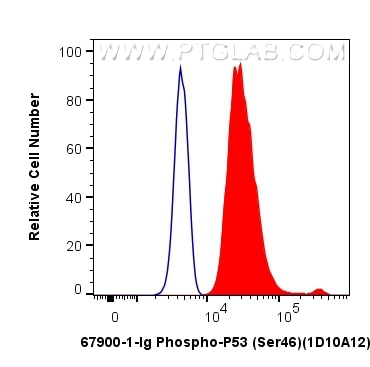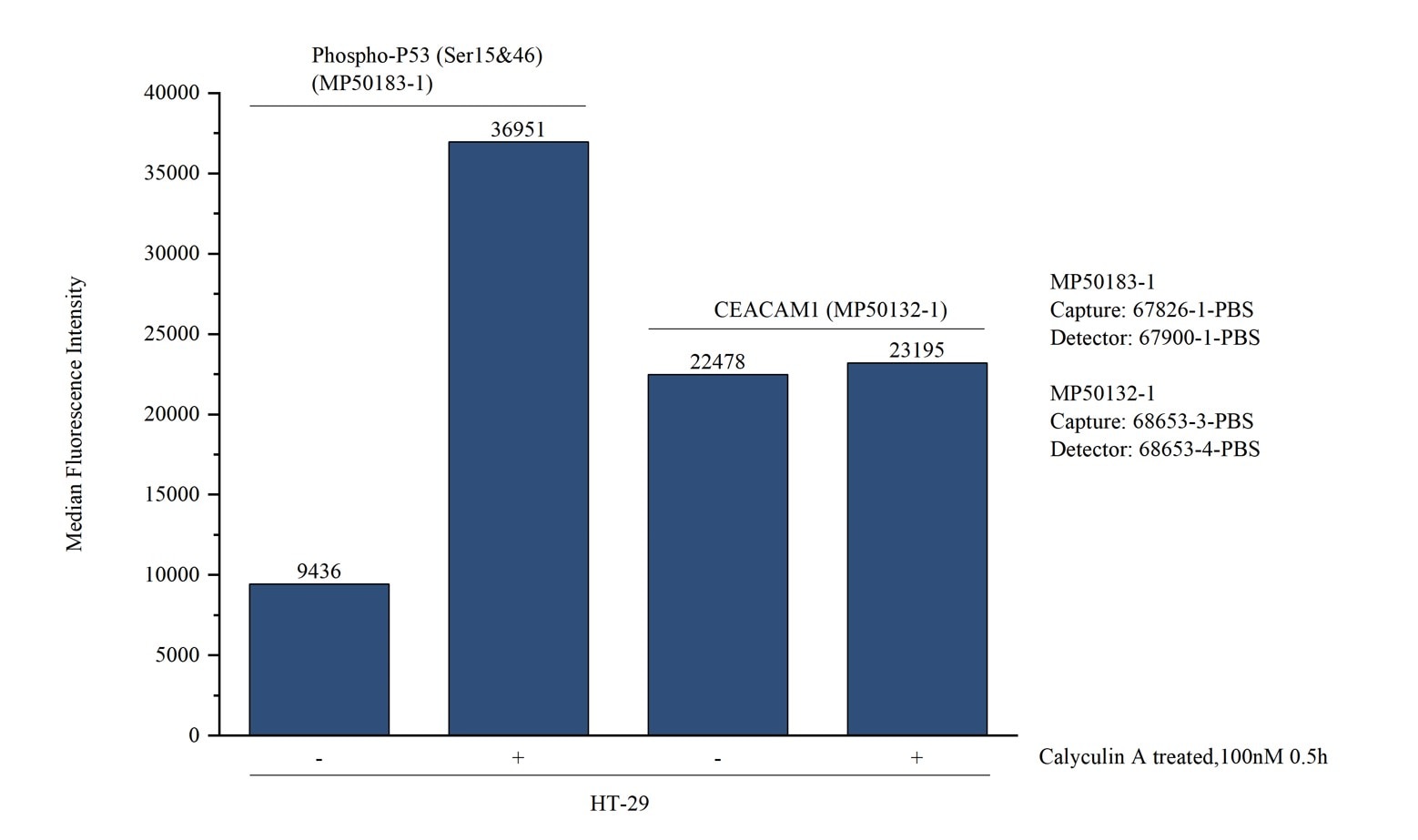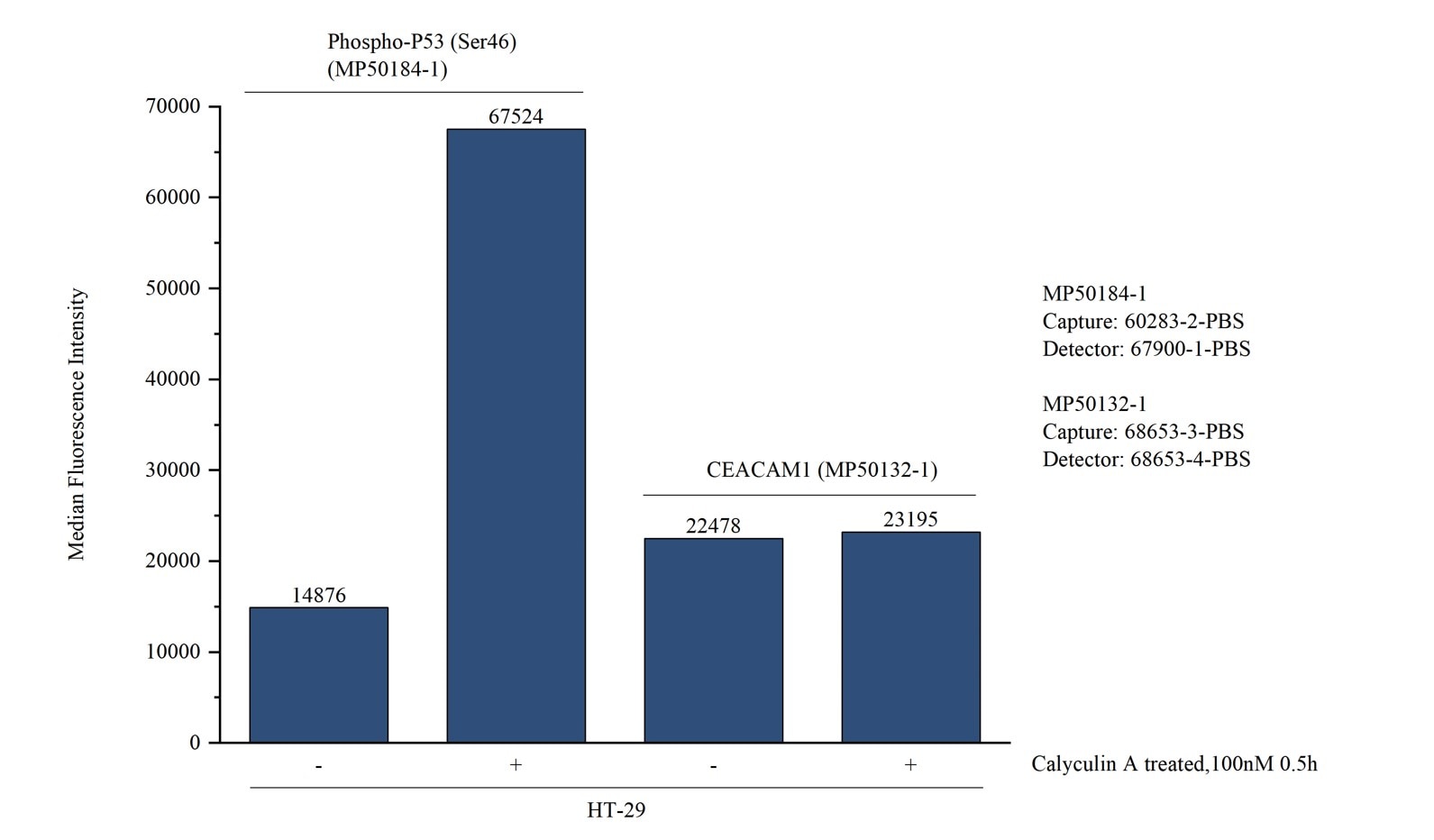Anticorps Monoclonal anti-Phospho-P53 (Ser46)
Phospho-P53 (Ser46) Monoclonal Antibody for WB, IHC, IF/ICC, FC (Intra), Cytometric bead array, Indirect ELISA
Hôte / Isotype
Mouse / IgG1
Réactivité testée
Humain
Applications
WB, IHC, IF/ICC, FC (Intra), Cytometric bead array, Indirect ELISA
Conjugaison
Non conjugué
CloneNo.
1D10A12
N° de cat : 67900-1-PBS
Synonymes
Galerie de données de validation
Informations sur le produit
67900-1-PBS cible Phospho-P53 (Ser46) dans les applications de WB, IHC, IF/ICC, FC (Intra), Cytometric bead array, Indirect ELISA et montre une réactivité avec des échantillons Humain
| Réactivité | Humain |
| Hôte / Isotype | Mouse / IgG1 |
| Clonalité | Monoclonal |
| Type | Anticorps |
| Immunogène | Peptide |
| Nom complet | tumor protein p53 |
| Masse moléculaire calculée | 44 kDa |
| Poids moléculaire observé | 53 kDa |
| Numéro d’acquisition GenBank | BC003596 |
| Symbole du gène | P53 |
| Identification du gène (NCBI) | 7157 |
| Conjugaison | Non conjugué |
| Forme | Liquide |
| Méthode de purification | Purification par protéine G |
| Tampon de stockage | PBS only |
| Conditions de stockage | Store at -80°C. 20ul contiennent 0,1% de BSA. |
Informations générales
P53 is activated in response to alteration of normal cell homeostasis, including DNA damage, nutrient starvation, heat shock, virus infection, pH change, hypoxia, and oncogene activation. P53 maintains genetic stability by regulating different processes, such as cell-cycle arrest, DNA synthesis and repair, programmed cell death, and energy metabolism. In non-stressed conditions these proteins bind p53, ubiquitylate it and target it for degradation by the proteasome. In stressed conditions the function of the MdM2-MdM4 complex is blocked by phosphorylation, protein-binding events and/or enhanced degradation. (PMID: 19935675, PMID: 24379683)
